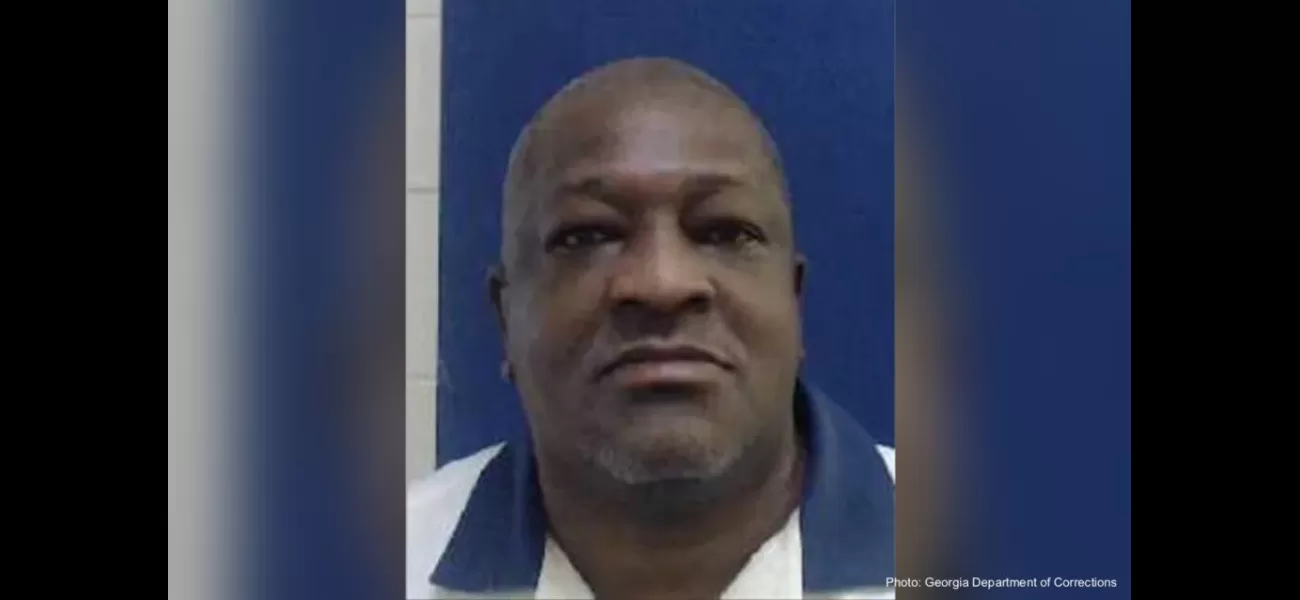Despite evidence, Willie Pye, a Georgia prisoner with an intellectual disability, was executed.
In 1996, Willie Pye was found guilty of kidnapping, robbery, rape, and murder of his ex-girlfriend. Despite evidence of his intellectual disability, his lawyer did not properly convey this to the jury.
March 21st 2024.

Willie Pye, a Black man from Georgia, was put to death on March 20th after being convicted nearly thirty years ago for the murder of his ex-girlfriend and other crimes. According to the Huffington Post, despite evidence suggesting that Pye suffered from intellectual disability, he was still sentenced to death and ultimately executed.
The case against Pye began in 1996 when he was found guilty of kidnapping, robbery, rape, and the murder of his ex-girlfriend, Alicia Lynn Yarbrough. Throughout the trial, there were indications of Pye's intellectual disability, but unfortunately, his public defender failed to effectively present this to the jury.
In a last-ditch effort to save Pye's life, his lawyers filed court documents and pleaded with Georgia's Board of Pardons and Parole to grant him clemency. However, their attempts were unsuccessful, and Pye was executed despite ongoing concerns about errors in the legal process and the lack of proper defense during his trial.
Cathy Harmon-Christian, the executive director of Georgians for Alternatives to the Death Penalty, expressed her disappointment in the outcome, stating, "We just feel that there should be mercy granted. We have parole boards so that they have the opportunity to grant mercy when the law fails. And for Willie, the law has failed."
In their plea for clemency, Pye's legal team highlighted his troubled childhood and mental health issues, arguing that these factors should have resulted in a life sentence instead of the death penalty. They stated, "Had defense counsel not abdicated his role, the jurors would have learned that Mr. Pye is intellectually disabled and has an IQ of 68." However, the parole board ultimately chose not to grant clemency.
During the trial, witnesses portrayed Pye as a danger to society, emphasizing the potential for future violence. However, Pye's lawyers argued that his defense attorney at the time, Johnny Mostiler, did not adequately investigate or present evidence of Pye's traumatic upbringing or intellectual disability to the jury.
Investigator Dewey Yarbrough, who assisted Mostiler in the trial, testified that not enough effort was made to explore Pye's intellectual disability and troubled background. Even Pye's family members, who were called to testify, were criticized for their lack of cooperation in providing evidence to support his case.
The execution of Willie Pye, despite his intellectual disability and concerns about his legal representation, has sparked ongoing debates about the fairness and effectiveness of the death penalty system in the United States. It serves as a tragic reminder of the flaws and potential injustices within the criminal justice system.
The case against Pye began in 1996 when he was found guilty of kidnapping, robbery, rape, and the murder of his ex-girlfriend, Alicia Lynn Yarbrough. Throughout the trial, there were indications of Pye's intellectual disability, but unfortunately, his public defender failed to effectively present this to the jury.
In a last-ditch effort to save Pye's life, his lawyers filed court documents and pleaded with Georgia's Board of Pardons and Parole to grant him clemency. However, their attempts were unsuccessful, and Pye was executed despite ongoing concerns about errors in the legal process and the lack of proper defense during his trial.
Cathy Harmon-Christian, the executive director of Georgians for Alternatives to the Death Penalty, expressed her disappointment in the outcome, stating, "We just feel that there should be mercy granted. We have parole boards so that they have the opportunity to grant mercy when the law fails. And for Willie, the law has failed."
In their plea for clemency, Pye's legal team highlighted his troubled childhood and mental health issues, arguing that these factors should have resulted in a life sentence instead of the death penalty. They stated, "Had defense counsel not abdicated his role, the jurors would have learned that Mr. Pye is intellectually disabled and has an IQ of 68." However, the parole board ultimately chose not to grant clemency.
During the trial, witnesses portrayed Pye as a danger to society, emphasizing the potential for future violence. However, Pye's lawyers argued that his defense attorney at the time, Johnny Mostiler, did not adequately investigate or present evidence of Pye's traumatic upbringing or intellectual disability to the jury.
Investigator Dewey Yarbrough, who assisted Mostiler in the trial, testified that not enough effort was made to explore Pye's intellectual disability and troubled background. Even Pye's family members, who were called to testify, were criticized for their lack of cooperation in providing evidence to support his case.
The execution of Willie Pye, despite his intellectual disability and concerns about his legal representation, has sparked ongoing debates about the fairness and effectiveness of the death penalty system in the United States. It serves as a tragic reminder of the flaws and potential injustices within the criminal justice system.
[This article has been trending online recently and has been generated with AI. Your feed is customized.]
[Generative AI is experimental.]
0
0
Submit Comment





